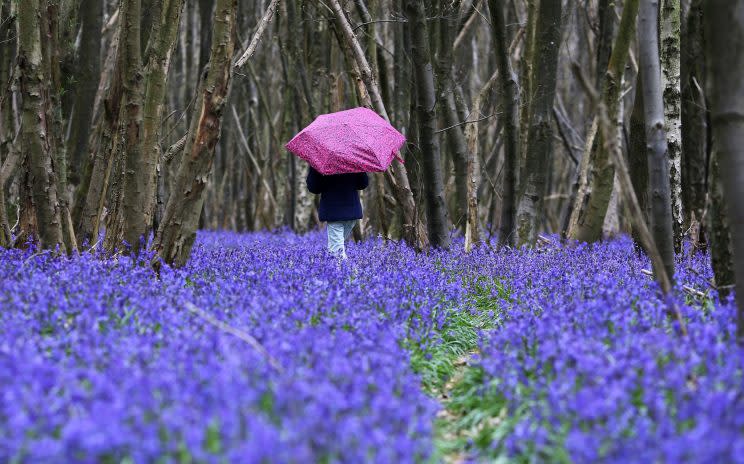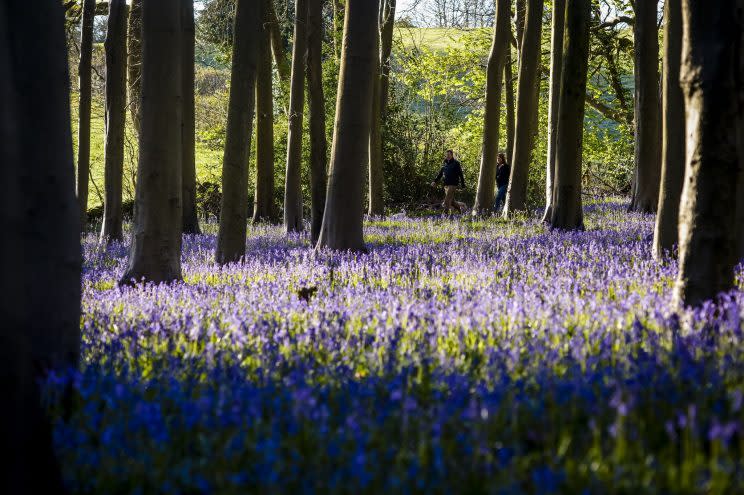Bluebells could struggle to cope with rising temperatures and a shift in spring

We all love the sight of carpets of bluebells – a sign that spring is finally on its way.
But it could soon become a rarity as the flowers struggle to cope with changes in the climate, a new study suggests.
Researchers analysed hundreds of thousands of records submitted by the public to help predict the impacts of warming temperatures on 22 species of plants and trees found in the UK countryside.
Spring plants have an optimum time for coming into leaf and flower, but rising temperatures caused by global warming mean those are likely to shift.
And some plants like bluebells might not be able to keep up with the shift, suffering as a result.

The study used information from more than 200,000 records dated between 1998 and 2014 from the Woodland Trust’s Nature’s Calendar, in which members of the public submit sightings of the nature’s seasonal changes such as first flowers and leaves.
Researchers used the data to analyse how species in different geographical areas would experience different environmental conditions such as temperatures to try to predict how they would respond to warmer springs.
MORE: Breathtaking new 20-week scans lets parents see babies wiggling – and their hearts beating
MORE: ‘Live to eat’ Britons bin almost £500 of edible food each a year – adding to a 7 million tonne waste mountain
For all 22 species, they found that the dates for first leaves or flowers could change with warmer spring temperatures – with each 1C increase making them come three to eight days earlier.
Seven of the species – silver birch, alder, beech, ash, wood anemone, cuckooflower and cocks-foot – will probably be able to keep track with future changes in climate, the study found, while several others didn’t show a consistent pattern.

But the study, published in the journal Global Change Biology, found that some might struggle to keep up with climate change – including the poor bluebell, as well as garlic mustard, sycamore and larch.
Christine Tansey, research and evidence coordinator at the Woodland Trust, who led the study at the University of Edinburgh’s School of Biological Sciences, said: “Plants have an optimum time for developing leaves and flowers – if they get it right, this will maximise their chances for growth and reproduction.
“As long-term temperatures change, it may alter the optimum timing for plants to develop.”
Dr Kate Lewthwaite, Woodland Trust citizen science manager, said: “The English bluebell is an iconic woodland species so this prediction is a wake-up call for the possible effects of climate change on much loved parts of our natural world.”

 Yahoo News
Yahoo News 


